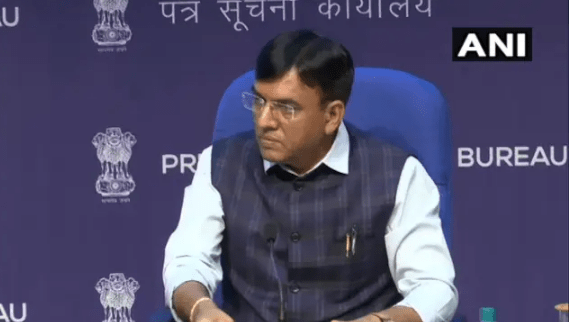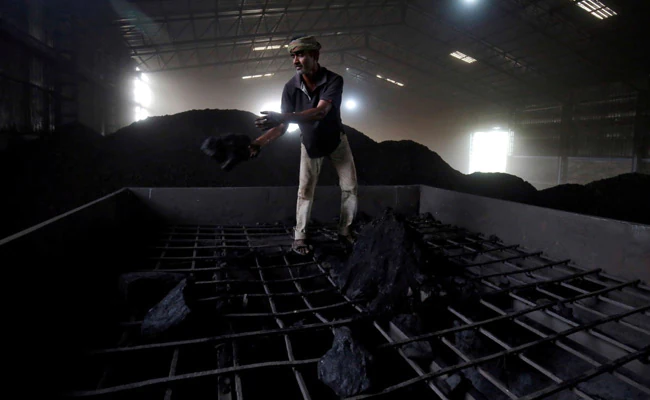In first Cabinet meeting After Reshuffle, Centre Declares Rs 23,123-cr COVID Package Deal; States to get Rs 8,000 cr
The new scheme aims to accelerate health system preparedness for immediate responsiveness for early prevention, detection and management, with the focus on health infrastructure development including for paediatric care
\
In the first Cabinet meeting after the reshuffle, the newly inducted Union Cabinet approved allocation of a new emergency response package worth Rs 23,123 crore to tackle the COVID-19 pandemic.
“Rs 23,000 crore package to be given to deal with COVID-19 . It will be used jointly by the Central and state governments,” said the new Union health minister Mansukh Mandaviya in the first media briefing of the new cabinet.
The package will help set up paediatrics departments in 736 districts, 20,000 new ICU beds and acquire buffer stocks of medicines, Mandaviya added.
Out of the 23,000 crore, around Rs 15,000 crore will be spent by the Centre and Rs 8,000 crore will be allocated to states, he said, adding the plans will be implemented in the next nine months.
In March 2020, the Cabinet had approved Rs 15,000 crore package for COVID-19 emergency response, which was utilised to upgrade the health infrastructure of the country, Mandaviya added.
Centre’s new health package: The Centre announced a new scheme ‘India COVID-19 Emergency Response & Health System Preparedness Package: Phase-II’ amounting to Rs 23,123 crore for FY 2021-22.
As per an official press release, the new scheme aims to accelerate health system preparedness for immediate responsiveness for early prevention, detection and management, with the focus on health infrastructure development including for paediatric care and with measurable outcomes.
This scheme would be implemented at a total cost of Rs 23,123 crore, from 1 July, 2021, to 31 March, 2022, with central and state shares as under:
- Central share: Rs 15,000 crore
- State share: Rs 8,123 crore
The Phase-II of the Package has central sector (CS) and centrally sponsored schemes (CSS) components.
Central sector components
- Support would be provided to central hospitals, AIIMS, and other institutions of national importance under DoHFW at VMMC and Safdarjung Hospital in Delhi, LHMC and SSKH in Delhi, RML in Delhi, RIMS in Imphal, NEIGRIMS in Shillong, PGIMER in Chandigarh, JIPMER in Puducherry and AIIMS Delhi (existing AIIMS) as well as new AIIMS under PMSSY for repurposing 6,688 beds for COVID-19 management.
- National Centre for Disease Control (NCDC) would be strengthened by providing genome sequencing machines, besides sanctioning scientific control room, Epidemic Intelligence Services (EIS) and INSACOG Secretariat support.
- Support would be provided for the implementation of the Hospital Management Information System (HMIS) in all the district hospitals (DHs) of the country. Presently, it is implemented only in 310 DHs.
- All district –hospitals would implement HMIS through NIC developed E-Hospital and CDAC developed E-Shushrut softwares. This will be the biggest impetus for the implementation of the National Digital Health Mission (NDHM) at the district hosptials. This support includes the support provided to the district hospitals towards augmentation of the hardware capacity.
- Support would also be provided for expanding the National Architecture of eSanjeevani Teleconsultation platform to provide up to 5 lakh teleconsultations per day from the present 50,000 tele-consultations per day. This includes support to the states/UTs to enable teleconsultations with COVID-19 patients at COVID Care Centres (CCCs) by strengthening hubs for eSanjeevani Teleconsultation in all the districts of the country.
- Support would also be provided for IT interventions, including strengthening the central war room at DoHFW, strengthening India’s COVID-19 Portal, 1075 COVID-19 helplines and the COWIN platform.
Centrally sponsored schemes
Under this scheme, the government’s efforts are aimed at strengthening district and sub-district capacity for an effective and rapid response to the pandemic. States/UTs would be supported to:
- Create paediatric units in all 736 districts and also, establish Paediatric Centre of Excellence (PaediatricCoE) in each state/UT, (either in medical colleges, state government hospitals or central hospitals such as AIIMS, INIs, etc) for providing tele-ICU services, mentoring and technical hand-holding to the district paediatric units.
- Augment 20,000 ICU beds in public healthcare system out of which 20 percent will be paediatric ICU beds.
- Provide care closer to the community due to the ingress of COVID-19 in rural, peri-urban and tribal areas, by creating pre-fabricated structures for adding additional beds at the existing CHCs, PHCs and SHCs (6-20 bedded units) and support would also be provided to establish bigger field hospitals (50-100 bedded units) depending on the needs at tier-II or Tier-III cities and district headquarters.
- Install 1050 numbers of liquid medical oxygen storage tanks with medical gas pipeline system (MGPS), with an aim to support at least one such unit per district.
- Augment the existing feet of ambulances — 8,800 ambulances will be added under the package.
- Engage undergraduate and postgraduate medical interns and final year MMBS, BSc, and GNM nursing students for effective COVID-19 management.
- As “test, isolate and treat” and following-up COVID appropriate behaviour at all the times is the national strategy for effective COVID-19 , support is provided to the states to maintain at least 21.5 lakhs per day.
- Flexible support to the districts for meeting the requirement of essential medicines for COVID-19 management, including the creation of buffer stock.
Here’s what the Centre said on the vaccine front: The government on Thursday said it is “actively pursuing” the enhancement of COVID-19 vaccine availability through imports and reiterated that its current focus is on purposing domestic production towards its vaccination programme.
- At an online media briefing, Ministry of External Affairs (MEA) Spokesperson Arindam Bagchi said India hopes that individual countries would increasingly recognise made-in-India vaccines.
- “Let me reiterate that our current focus continues to be on purposing domestic production towards India’s domestic vaccination programme,” he said, adding, “We are also actively pursuing the enhancement of vaccine availability through imports. This has helped increase the pace of vaccination in recent weeks.”
- Currently, three COVID-19 vaccines — COVAXIN by Bharat Biotech, Covishield by Serum Institute of India (SII) and Russia’s Sputnik V — are being used for inoculation in India.
- The total number of vaccine doses administered so far has reached 36.48 crore under the nationwide vaccination drive.
- Asked about the World Health Organization approval for COVAXIN, Bagchi said the government is continuing to monitor the progress and added, “I would refer you to Bharat Biotech for the exact status of where it stands. We also hope that individual countries would increasingly recognize made-in-India vaccines.”
Asked how many countries have shown interest in India’s technology platform for vaccination CoWin, Bagchi pointed out that a very important event, the CoWIN Global Conclave, was convened earlier this week and was addressed by the prime minister and other dignitaries.
“This was an opportunity to offer to the world our indigenously developed digital platform CoWin which is an open-source and can be shared with all. More than 400 participants from over 140 partner countries participated,” the MEA spokesperson said, adding that discussions will continue with partner countries.
With inputs from PTI



